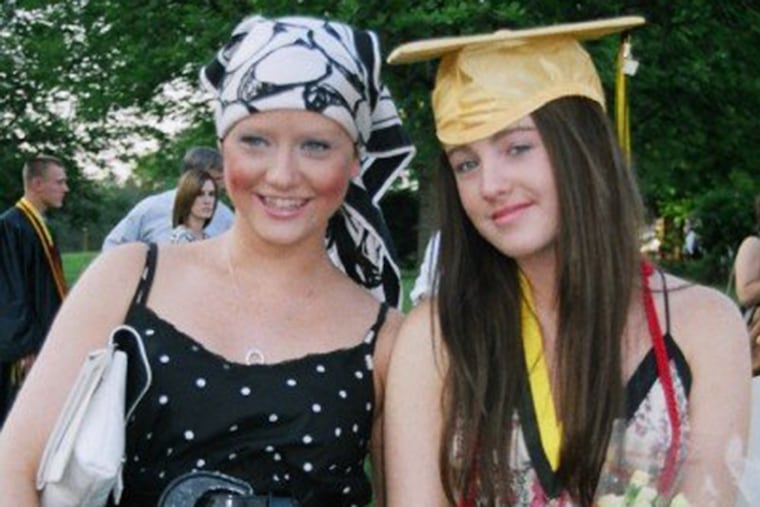Cancer survivor's other preexisting condition: Medical debt
At the end of my treatments, I was declared cancer free. But now I was living with another condition caused by cancer: I was in serious debt.

I was diagnosed with lymphoma when I was 22 years old. I had just graduated from college and was working as a legal assistant to save money for law school.
In order to live, I needed six months of chemotherapy, bi-weekly doctor appointments, two months of radiation, and a cocktail of medications. My anti-nausea drugs alone cost $80 a pill, and I took up to four a day. I had insurance, and although it covered my chemo and surgeries, it did not cover doctor appointments or prescriptions.
At the end of my treatments, I was declared cancer free. But now I was living with another condition caused by cancer: I was in serious debt.
I had a plan: I would regain my health, graduate from law school, get a job, and quickly get myself out of debt. Thankfully, I received a full scholarship to law school. I was excited to get back to normal.
What I did not anticipate was that "normal" meant something different now, as I began to experience after-effects of my treatment. My shoulder ached from the radiation, and my hands tingled with the "pins and needles" of neuropathy. My left arm and chest would swell, a side effect of surgery and radiation. I needed a handful of pills to manage the various conditions I was collecting.
Then, at a routine follow-up, I was diagnosed with cervical cancer. A series of surgeries would save my life. But I had to borrow money to cover the cost of my insurance and the co-pays for my specialists and prescriptions. I was struggling to stay on top of my current bills. I couldn't even think about paying off my cancer treatment debt.
My story is not exceptional. Many survivors grapple with cancer's late effects, which can include heart, lung, and hormone problems, high blood pressure, osteoporosis, chronic pain, neuropathy, memory problems, and fatigue. Even those lucky enough to avoid these problems need constant surveillance to watch for a recurrence, or a new cancer altogether.
With more people surviving cancer, we will have more people struggling to manage the cost of cancer over their lifetime.
At least for now, things have improved for cancer survivors. Since the passage of the Affordable Care Act, health-care insurance costs have become more manageable for people like me with preexisting conditions. Last year, I had surgery to remove a tumor from my pituitary gland. Despite a six-day stay in the ICU, I was able to cover the costs thanks to affordable insurance that was comprehensive enough under the law to cover my hospitalization, prescriptions, tests, and the management of my chronic conditions. I still live with my debt, a condition that pre-existed the health care law, but I am making progress toward a healthier physical and financial future.
But now that progress is at risk. Changes presented under the Republican proposal, the American Health Care Act, could make the kind of care that people with cancer and other serious conditions need unattainable. Insurers would be able to charge people with pre-existing conditions such as cancer far more for coverage. States would be allowed to eliminate the ACA's "essential health benefits" requirements, meaning policies could be far less comprehensive – putting needed care out of reach.
If the AHCA goes through in its current form, I may forever have to manage both my physical and financial pre-existing conditions.
The cuts that AHCA backers propose really just pass costs to people such as me.
In Pennsylvania, 77,710 people will be diagnosed with cancer this year. Virtually every family is touched in some way by cancer. Let's advocate for all of them, and all of us, by contacting our representatives and sharing our stories. Although we can never shed cancer as a pre-existing condition, we should be able to celebrate life without the burden of medical debt.
Sarah Happy works for a Philadelphia law firm and is an ambassador for the American Association for Cancer Research. She lives in South Philadelphia with her fiance, Noah Mallon, and their dog, Hugo. This column appears through our partnership with Inspire, an Arlington, Va., company with condition-specific online support communities for more than a million patients and caregivers.